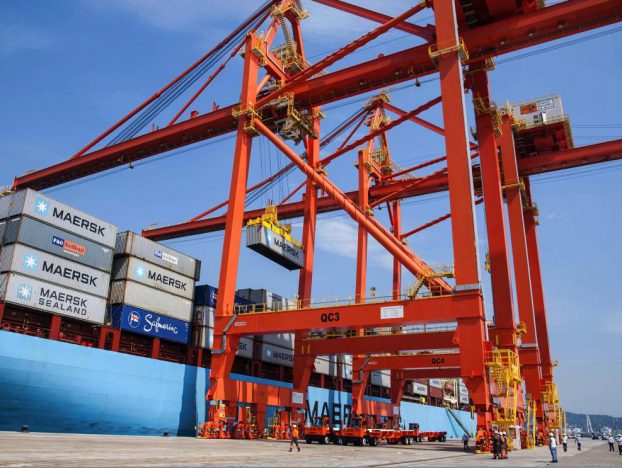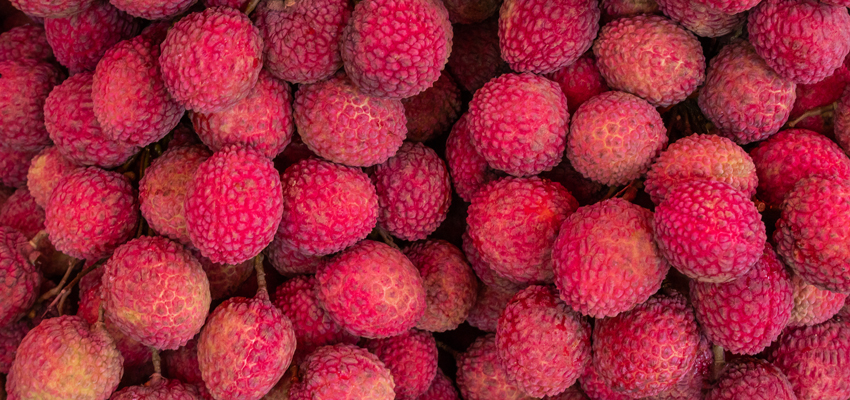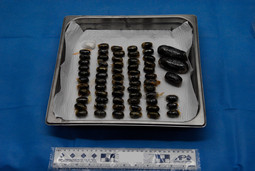
 |
|
"Knowledge is power. Information is liberating. Education is the premise of progress, in every society, in every family." - Kofi Annan |
01 November 2019 |
TCO Gazette Links
Click here for TCO archive Click here for news archive |
News Headlines
Aussie Coal Export Volumes
Analysts say that coal trade in the Pacific basin has been relatively positive this year, benefiting exporters from both Australia and Indonesia.
During the first nine months of 2019, Australia exported a total of 290.6million tonnes of coal. This was up 3.5% year-on-year. Australia’s monthly export of coal fluctuated from 26.3million tonnes in February 2019 to 37.3million tonnes in June 2019. The destinations didn’t change dramatically, although some shifts were reported. Shipments from Australia to China and South Korea kept grew steadily year, while volumes to Japan and India fell. During the first nine months of 2019, Australia sent 66.6million tonnes of coal to China, up 3.35% year-on-year with 22.9% of Australia’s coal shipments sent to China this year. Another 24.8million tonnes of coal were shipped to Taiwan, which was an increase of 1.2% year-on-year, with Taiwan accounting for 8.5% of Australia's coal export volumes this year. During the same period, 35.9million tonnes of coal were shipped from Australia to South Korea, up 9.4% year-on-year, with Australia gaining market share there. South Korea was the destination of 12.4% of Australia’s coal exports. During the first nine months of 2019, Australia sent 79.2million tonnes of coal to Japan, down 4.7% year-on-year. Japan is the top destination for Australian coal, and was the destination of 27.2% of Australia’s coal shipments this year. Australia was reported to have lost market share in India to Indonesian competition, despite stronger overall Indian coal demand. “So far this year, Australian was the source of just 21% of India’s coal imports, against Indonesia’s 43% share,” analysts reported. Prestigious Award for VICT
The Lloyd’s List Asia Pacific Awards ceremony was held in Singapore’s Shangri-La Hotel earlier last month to recognise shipping excellence. Victoria International Container Terminal was the winner of the Lloyd’s List Asia Pacific Award for Excellence in Port Management and Infrastructure.
Based at our very own Webb Dock in Melbourne, judges noted that VICT had captured 25% market share and had “positively disrupted the market” by offering more stevedoring competition. VICT was described as having “been at the forefront of innovation and technology and is the first fully automated container terminal in Australia”. “VICT has adopted an holistic business approach, streamlining its landside operations to provide greater benefits to shipside operations. With continuous investment in technology, people and community, VICT’s fully automated container terminal delivers safer, consistent, predictable and accurate operations,” the judges noted. “VICT serves the world’s leading shipping lines, always operating with its customers in mind and adding value throughout the supply chain.” The Judges felt that the terminal’s commitment to delivering “safer, consistent, predictable and accurate operations" deserved recognition this year. “VICT is proud of the milestones it has achieved and to receive this award,” a spokesperson said. Taiwanese Lychees Grown in Queensland
The Queensland agricultural industry celebrated future opportunities with Queensland-grown varieties of Taiwanese lychees, with eventual exports of the Queensland-grown Taiwanese lychees to Asia.
The significant step marked the planting of six new purpose grown Taiwanese varieties at Groves Grown Tropical Fruit Farm in Yeppoon, near Rockhampton. “Today’s celebration represents both a significant physical and symbolic milestone in the horticulture research relationship between Queensland and Taiwan which stretches back more than a quarter of a century,” Mrs Brittany Lauga MP said. “The Queensland government is keen to develop this export opportunity and I thank Taiwan and their Council of Agriculture deputy minister Dr JJ Chen for making the new varieties available to Queensland farmers for testing." “These new Taiwanese varieties of lychees is an exciting development that hopefully results in opening the door for Queensland producers to increased export market share as well as supplying the Australian domestic market.” Agriculture minister Mark Furner said exporting lychees to Asia was a long-term effort. “In 2016, the Department of Agriculture and Fisheries signed a Memorandum of Understanding with the Taiwan Council of Agriculture to introduce six new varieties of lychees from Taiwan into Queensland,” Mr Furner said. “It is expected the trees will take approximately three years to grow before DAF can begin to evaluate which varieties are best to grow and are commercially viable and then take eight to ten years before significant volumes can be grown in Queensland.” Mr Furner said if the lychees did well in Queensland conditions, Australian growers and Taiwan could then consider a joint project to export to other Asian countries. Mr Furner met with Dr JJ Chen, Deputy Minister of Taiwan’s Council of Agriculture, earlier this month to discuss opportunities for expanding trade between Queensland and Taiwan. “In 2018-19, Queensland’s agri-food exports to Taiwan totalled over $252million making Taiwan Queensland’s ninth largest agri-food export market,” he said. “Queensland already exports beef, seafood, wood products, nuts, beans, grain sorghum, soybeans and mandarins to Taiwan and adding lychees to that portfolio is an exciting prospect.” Illicit Cigarettes via Air Cargo
The Illicit Tobacco Taskforce (ITTF) run by the Australian Government, led by the Australian Border Force (ABF) has detected over a million cigarettes in an air cargo shipment from Korea declared as mini massagers.
On 19 October 2019, the consignment was targeted for examination. ABF officers inspected the shipment declared as mini massagers and found nothing other than 5,000 cartons of cigarettes. A total of 1,094,000 cigarettes were seized, weighing over a tonne, representing more than $1.1 million in evaded duty and GST. Apart from the false declaration, the consignor had made no effort to conceal the cigarettes in a brazen attempt to thwart the system. Investigations into the people behind the attempted importation are ongoing. ABF Acting Commander Special Investigations, Chris White said the detection was another example of the ITTF’s commitment to disrupting the supply of illicit tobacco. “This means the profit from the illegal sale of more than one million cigarettes has not made it into the coffers of organised crime” Acting Commander White said. “Australians who buy illicit tobacco should be aware that the proceeds of these sales are supporting a market dominated by criminal syndicates that use the profits from illicit tobacco to fund other illegal activities. “ABF officers are well versed in the various methods tobacco and cigarette smugglers use to attempt to circumvent Australia’s air and sea border controls,” he added. Assistant Minister for Customs, Community Safety and Multicultural Affairs, the honourable Jason Wood MP, thanked the ITTF and the ABF for their efforts. Internal Pellet Concealment Attempts
A 54 year old man faced court for the alleged internal concealment of 109 pellets suspected to contain amphetamines imported via Melbourne International Airport on 26 October 2019.
The US citizen was taken into custody shortly after arriving in Melbourne, accused of internally concealing a border controlled drug. Australian Border Force (ABF) officers at Melbourne International Airport selected the man for a full baggage examination after he arrived on board a flight from New Delhi, India. When a frisk search returned a negative result the man was requested to undertake a non-medical body scan, which returned an inconclusive result. He was then referred to the Australian Federal Police (AFP) who took him to the Royal Melbourne Hospital Emergency Department for a CT scan which positively identified foreign pellets inside his body. AFP Commander Crime Operations Jason Williams said Australian law enforcement will continue to combat the movement of illicit drugs across international borders, with detections such as this having a significant impact on organised crime and Victoria's drug supply. ABF Regional Commander, Craig Palmer said that internal concealments such as this demonstrated the challenging role that ABF officers at the front-line have in detecting illicit drugs. The man received treatment at the Royal Melbourne Hospital over the weekend. He was also arrested and charged with importing and possessing a commercial quantity of a border controlled drug. Similarly, a 49 year old Italian national was arrested and charged after importing 300grams of heroin wrapped in 66 pellets which were concealed inside his body. The man flew to Perth from Chiang Mai, Thailand, via Kuala Lumpur back in early September. He was selected by ABF officers for a full baggage examination and when he returned a positive reading for narcotics from his luggage, he was then referred to the AFP for an internal examination. The man was taken to hospital where it will be alleged 63 pellets were recovered from his stomach, plus another three pellets that had been internally inserted. The total weight of the drugs was 300.4 grams, with further testing returning a positive result for heroin. The estimated street value of 300 grams of heroin is $135,000. The maximum penalty for this offence is 25 years imprisonment. Friday Funnies
What do you get when you wake up on a workday and realize you ran out of coffee?
A depresso. Dentist: "You need a crown." Patient: "Finally! Someone who understands me" What do you call the soft tissue between a shark's teeth? A slow swimmer. Women usually claim childbirth is the most painful experience of their lives. Until they start stepping on Lego approximately three years later. Meanwhile in a parallel universe: “Oh for God’s sake! Where are all these extra single socks coming from?!” Do not go to the bathroom in a dream. It’s a trap! |       |